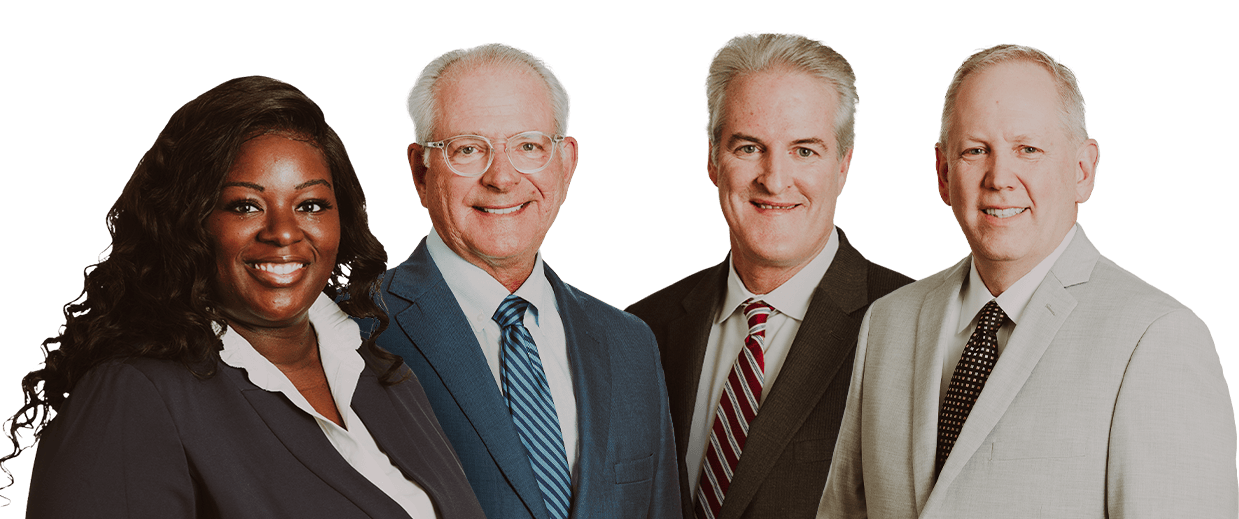Insurance Adjuster
After a personal injury caused by a slip and fall accident, car accident, or other incident, the insurance company for the at-fault party will assign an insurance adjuster to handle your injury claim. Unfortunately, insurance claims adjusters can be difficult to deal with during the claims process.
Whether you deal with claims adjusters employed by the insurance company or independent insurance adjusters, adjusters work for the insurance company. Claims adjusters handle all types of claims, including workers’ compensation, product liability, premises liability, medical malpractice, construction accidents, and general negligence claims.
Adjusters investigate claims to determine:
- If the insured party caused your injury;
- Whether the insurance policy covers the accident or incident;
- The injuries and damages you sustained; and
- The amount of your damages.
Before you talk to an insurance adjuster or accept a settlement offer, it helps to know these six things about insurance adjusters.
1. What You Say to an Adjuster Could Hurt Your Claim
Your statements to an insurance claims adjuster could hurt your chances of recovering fair compensation for damages.
An adjuster may tell you that they cannot process your claim if you don’t provide a written or recorded statement. BEWARE! Insurance companies investigate claims filed regardless of whether the victim provides a statement.
Requesting a statement is a way to get your statements on record. Those statements could be used in court if you file a personal injury lawsuit.
Adjusters are highly skilled, trained insurance professionals. They ask leading questions, open-ended questions, and even misleading questions. Idle conversation makes you feel at ease so that the insurance agent can get more information from you.
Talk to a Clearwater personal injury lawyer before speaking with a claims adjuster. If you agree to make a statement, remember never to volunteer information or guess an answer. Be concise and honest. Only qualify your answers if necessary.
2. The Claims Adjuster Is Not on Your Side
The claims adjuster has the insurance company’s best interest as the top priority. Therefore, an adjuster will settle the claim to save the insurance company money.
Some adjusters handle claims by convincing the victim that they can trust the adjuster, so they do not need to hire a car accident lawyer. They tell the victim that the insurance company will pay a fair amount for their claim. Therefore, the victim trusts the adjuster.
However, the insurance adjuster’s goal is to get you to accept the smallest amount possible to settle your claim. The adjuster may tell you that the settlement offer is higher than the value of your damages because the insurance company accepts liability. The entire scenario is designed to gain your trust to take advantage of your lack of legal knowledge.
3. Allegations of Contributory Fault
Florida’s modified comparative fault laws reduce the amount of money you receive for damages if you are partially to blame for the cause of the accident. Your compensation is reduced by the percentage of your fault. Further, under Florida law, you cannot recover compensation if this percentage is 51% or more.
A claims adjuster may unfairly accuse you of contributing to the cause of an accident by using the comparative fault laws to decrease how much your personal injury claim is worth.
For example, if you told the adjuster that your aunt died on the day of the accident, the adjuster may “explain” that you were distracted because of your aunt’s death. Therefore, you likely contributed to the cause of the accident, so you cannot receive full compensation for your damages.
Do not fall for this insurance tactic. Instead, talk with an injury lawyer immediately if a claims adjuster tries to blame you for causing your injury.
4. Questionable Tactics and Settlement Agreements
Adjusters have many tactics they use to reduce settlement amounts, including:
- Reductions for comparative negligence allegations
- Discounting medical expenses and bills
- Offering quick settlements before you complete medical treatment
- Estimating future damages without supporting evidence
- Disregarding medical liens
The adjuster may pressure you to settle the claim by telling you that the insurance company is only willing to make the offer for 24 hours. After that, the insurance company will not be willing to offer that much money again.
Be careful! Talk to a lawyer to ensure you know the actual value of your damages before settling a claim.
When you sign a settlement agreement, you give up your right to file a lawsuit. You release all claims against all parties, even if you are unaware of the claims. If you discover you need additional surgery or have more damages, you cannot demand more money because you released your right to pursue a legal claim.
5. Undervaluing Future Damages for Severe Injuries
You may be entitled to future damages when you sustain a permanent impairment or disability.
Future damages could include:
- Lost wages and reductions in earning potential
- Ongoing medical treatments
- Long-term nursing care
- Personal care, including assistance with household chores and activities of daily living
You are also entitled to compensation for ongoing pain and suffering caused by permanent disabilities and impairments. However, an insurance adjuster may handle claims involving future damages by underestimating the cost of future care and losses.
Instead of consulting medical experts, economists, and other expert witnesses to determine the amount of your future expenses and losses, the insurance adjuster will choose a low amount they believe you will accept. The value of your future damages could be worth substantially more money.
6. Allegations of Failing to Mitigate Damages
Delays in medical care may be used by the claims adjuster to allege that:
- The accident did not cause your injuries, or you would have sought immediate medical treatment; or
- Your delay in seeking medical treatment caused your condition to worsen.
The insurance company may claim that you failed to mitigate damages by not receiving medical care sooner. The claims adjuster may explain that you are not entitled to a larger settlement amount because it is your fault that your injuries and damages are more severe.
Talk with a lawyer before accepting the settlement amount.
You do not have to deal with aggressive insurance adjusters alone. Contact an experienced personal injury attorney in Clearwater, FL at (727) 591-3354 to discuss your case. A lawyer will advise you of your legal options and calculate the value of your claim so that you don’t accept a low settlement offer. If the insurance company refuses to settle for a fair amount, an attorney from Perenich, Caulfield, Avril & Noyes Personal Injury Lawyers will be ready to assist you with filing a personal injury lawsuit.

We treat you like family.
If you can’t come to us, we’ll come to you.
Representing Accident Victims in Tampa Bay since 1955



-
“Friendly knowledgeable and kept me informed about my case. Any offer, bill or question was readily answered. Would definitely recommend and refer people to Bryan Caulfield and his team!!”- Betty B.
-
“Mrs Bryant works her butt off to make sure you get what is do to you in medical and beyond! They won’t take your case if they don’t feel you haven’t been wronged.”- Christine R.
-
“Working with Mark Perenich on my auto injury case was an absolute game-changer. From the very beginning, he brought a level of professionalism, expertise, and care that immediately put us at ease.”- Kerry B.
-
“Lorrie and Allyson are phenomenal. I highly recommend them to anyone. It seemed like a never ending journey but I can’t thank them enough for diligently fighting my case with the greatest integrity, support and prayers.”- Former Client
-
“From the first day we met this law group I felt very comfortable and knew we would be well taken care of. This was our first experience filing for SSD, and was not disappointed. The lawyers are awesome and very professional.”- Shari J.
-
“Very nice they worked with you. Never ignored me with my case. Always on top to work with you. Thank you so much for all that you have done to help me! Very highly recommend.”- Margarita O.
-
“My appointed attorney was Jacqueline, Bryant. She is very compassionate about her client and work. When it comes to negotiation, she's a Beast and she gets the job done.”- Alaina J.
-
“What was particularly awe inspiring was the recall of facts and testimonies from medical personnel that Para Legal Ms. Josephine Elizabeth Angelo was able to make. Her memory and acumen for detail was admirable.”- Maylisa Y.
-
“Wonderful, impeccable, personalized, authentic, truthful, honest experience. Rare, real, and human firm.”- Sheryl G.


We’ve been proudly serving Clearwater, St. Petersburg, and the Tampa Bay area for generations. As the first personal injury law firm in Clearwater, our dedicated legal team brings over 300 years of combined experience to each and every case. If you’ve been injured and need support, please reach outtoday for a free consultation, we are here to help you.















